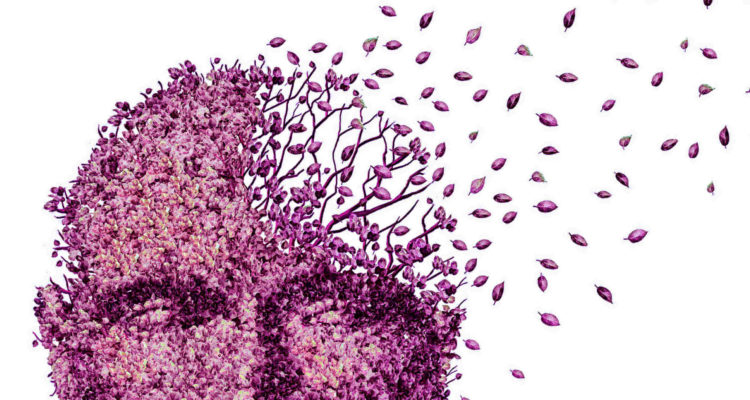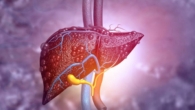
Scientists have told how to protect against dementia
0
Alzheimer's disease scares many, because it ultimately deprives a person ability to interact with others and make decisions independently. Although scientists do not yet fully understand this disease, they have been able to identify risk factors and suggest a number of preventive measures.
Alzheimer's disease can seem scary and mysterious to you. It is a disease with a progressive course that ultimately deprives a person of the ability to interact with people and act independently. Scientists still cannot fully understand this disease, but every year they learn more about it. It has recently become clear that most people with Alzheimer's disease do have certain risk factors, and that there are steps you can take to reduce your risk of developing the disease. Below we will talk about it in more detail so that you can take care of your health and the health of your loved ones.
What is Alzheimer's disease?
Alzheimer's disease causes changes in thinking, memory and personality. Ultimately, it deprives a person of the ability to live and act independently. “Alzheimer's disease is a disease with a progressive course, in which the symptoms of dementia gradually increase over several years,” explain the experts of the Alzheimer's Association (Alzheimer's Association). – In the early stages, there is a moderate weakening of memory functions, but in the later stages, people suffering from this disease lose the ability to maintain a conversation and respond to changes in the environment.”
Although there is currently no cure for Alzheimer's disease, a drug called Aducanumab may be able to slightly slow the process of cognitive decline. According to the Centers for Disease Control and Prevention, almost six million Americans currently suffer from Alzheimer's disease. The disease is currently the sixth leading cause of death in the United States.
Most Common Causes of Alzheimer's Disease
“Scientists believe that in most cases, Alzheimer's disease is caused by a combination of factors such as genetic predisposition, lifestyle and environmental influences, the effects of which affect the brain over time,” the Mayo Clinic organization reports.
Age . Age is the most important risk factor for developing Alzheimer's disease. The likelihood of developing this disease increases significantly after 65.
Genes. If someone in your close family suffers from Alzheimer's disease, you need to be aware that you may have an increased risk of developing it. .
Way of life.Obesity, smoking, hypertension, diabetes, and high cholesterol can increase the risk of both cardiovascular disease and Alzheimer's disease. According to the results of a number of studies, almost 80% of people who suffer from Alzheimer's disease also have diseases of the cardiovascular system. Excessive alcohol consumption is also a factor that increases the likelihood of developing dementia.
Social isolation.Social isolation and low mental activity also increase the risk of developing this disease. Research shows that people who are socially isolated and do not exercise their cognitive functions face an increased risk of developing dementia.
Experts believe that these factors can lead to such changes in the brain that spill over in characteristic symptoms of Alzheimer's disease.
Accumulation of toxic products of cell decay in the brain. Although the causes of Alzheimer's disease are not yet fully understood, scientists have focused on such a risk factor as the accumulation of non-viable tissue in the brain, which in turn prevents brain proteins from functioning properly. Brain cells called neurons are damaged, the connections between them are destroyed, and they die.
We are talking about two types of cellular “garbage”. First, these are plaques, which are protein fragments that attach to other products of cellular decay, disrupting intercellular connections. Secondly, neurofibrillary tangles, which are proteins that change their shape and stick to each other, which in turn kills healthy cells.
How to reduce the risk of developing Alzheimer's disease
“Although some risk factors, such as age and genetic predisposition, cannot be changed, other risk factors, such as high blood pressure and lack of exercise, are usually correctable, which helps to reduce the risk,” the experts explained from the Alzheimer's Association. Below are the recommendations of experts.
Regular sports activities.CNN's chief medical correspondent Sanjay Gupta says that this is the best way to reduce the risk of developing Alzheimer's disease. “Exercise, both aerobic and anaerobic (strength training), benefits not only your body, but also your brain,” he says.
Quality sleep. Necessary ensure quality sleep lasting seven to nine hours. During sleep, the brain goes through a kind of “rinse cycle”, getting rid of cellular breakdown products and toxins.
Caring for heart health. Try to eat foods that are good for your heart, eat more vegetables and fruits, less red meat, added sugar and processed foods.
Social and mental activity. It is necessary to maintain social and mental activity. Involvement in the life of society and “training” the brain with the help of various activities and techniques that stimulate its work will allow you to keep your health longer.









Leave a Reply